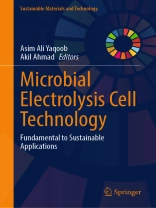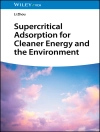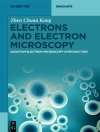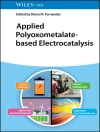This book covers the different aspects of microbial electrolysis cell (MEC) technology and its applications in wastewater treatment such as nutrient recovery and heavy metals removal. The MEC technique is related to the technique the microbial fuel cells (MFC);, while the MFC uses the microbial decomposition of organic molecules to generate an electric current, MEC partly reverses the process by using an electric current to generate hydrogen or methane from organic material. If a sustainable energy source is used to generate the electric current, the generated hydrogen or methane can be used in an internal combustion engine or PEM fuel cell to generate energy. The chapters in this book describe the basic principles and working mechanism of the MEC, its effectiveness depending on the kind of microorganisms present, type of electrode materials, use of catalysis, and lastly its potential industrial applications for environmental remediation. This book benefits students, young researchers, academicians, and industrial scientists who are working in the field of environmental pollutants and their safe removal using new technologies.
Tabela de Conteúdo
Basic electrochemical concept of Microbial electrolysis cell.- Principal, mechanism, and basic thermodynamics of microbial electrolysis cell.- Material for microbial electrolysis cell: Design to reactor configuration.- Impact of electrode material on microbial electrolysis cell performance.- Effect of substrate on the efficiency of microbial electrolysis cells.- Electrochemical and theoretical concept of the microbial electrolysis cell.- Microbiology study of microbial electrolysis cell: A essential subject of the technique.- Microbial electrolysis cell integration with other bioelectrochemical fuel cells for sustainable applications.- Effect of design and other parameters of a microbial electrolysis cell for industrial wastewater treatment.- Recent advances in microbial electrolysis cells for high production of hydrogen generation.- Role of Microbial electrolysis cell in the production of methane.- Prospective application of microbial electrolysis cells for energy generation coupled with domestic wastewater treatment.- Role of microbial electrolysis cells in the nutrient recovery process.- Applications of microbial electrolysis cells in anaerobic digestion.- Microbial electrolysis cells for the treatment of dye effluent coupled with the generation of hydrogen.- Microbial electrolysis cell for heavy metal removal from wastewater.- A critical discussion on microbial electrolysis cells and microbial fuel cells (MFCs).- Engineering challenges of the microbial electrolysis cell for stable performance.
Sobre o autor
Dr. Asim Ali Yaqoob received his Doctor of Philosophy in Material Chemistry from Universiti Sains Malaysia (USM) under the supervision of Associate Prof. Dr. Mohamad Nasir Mohamad Ibrahim. Currently, he is working as teaching assistant at City of Oxford College, Oxpens Rd, Oxford OX1 1SA, United Kingdom. He has been working on a bioelectrochemical system to recover the value-added product from wastewater, coupled with renewable energy generation. His primary research interests are in material science, with applications to energy and the environment. He also extended the biomass-based material application to bioelectrochemical fuel cells. The objective is to convert the waste material into a value-added product through bioelectrochemical fuel cells to produce renewable energy for environmental applications such as methane production, hydrogen production, wastewater treatment, etc. He has published 30 articles in highly reputed journals and several book chapters (19 chapters). A list of publications and other research items is presented in his CV.
Dr. Akil Ahmad currently working at Prince Sattam bin Abdulaziz University, Saudi Arabia, as an assistant professor in Chemistry and having the experience of seven years as a research fellow, teaching fellow, postdoc, and visiting researcher from Universiti Teknologi Malaysia, Universiti Sains Malaysia, University of Kwa Zulu-Natal, South Africa and Universiti Kebangsaan Malaysia, Malaysia. He has completed Ph.D. in Analytical Chemistry (2011) with the topic “Modification of resin for their use in the separation, preconcentration and determination of metal ions” from Aligarh Muslim University (AMU), India. His research interest is in the areas of environmental pollutants and their safe removal, synthesis of nanoparticles and nano-sorbents (GO, CNT), photo-degradation and antimicrobial effects, water and wastewater treatment, and adsorption and ion exchange.












